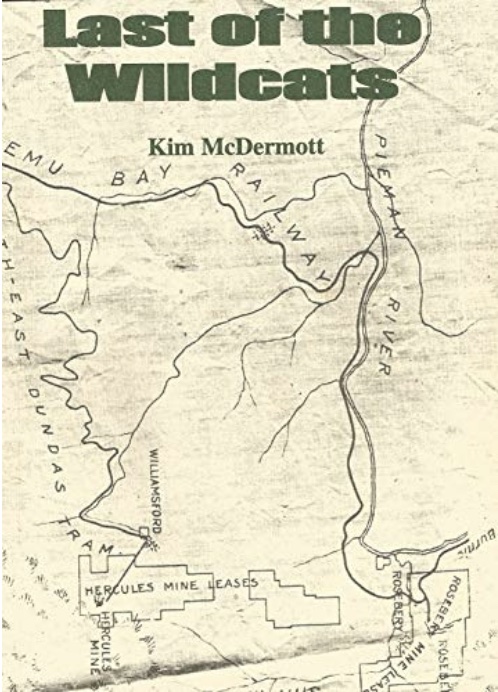A wooden pipeline that carries more than water – it carries a lot of history
A wooden pipeline that carries more than water – it carries a lot of history Read More »
Almost all the kids that grew up in Guildford Junction recall there was something magical about their experience. Whether it’s the memories of their one-room school and teachers, the adventures in their big surrounding playground called the bush, the snakes, the cold and the snow, the isolation, the waratahs in flower or just the scented lupin paddocks dotted around the town.… Read more
More memories of growing up in Guildford Read More »
Herbert Illichmann has provided some bits and pieces about a gentleman called Harry Fisher. Unfortunately, information about Harry is scant, but there are references to him in Kim McDermott’s excellent book Last of the Wildcats and the memoirs of Herbert’s father-in-law, Lindsay Wilson.

There are also a couple of newspaper articles about Harry, but because Lindsay didn’t provide specific dates, I cannot find them.
A bushman and his dogs Read More »
Introduction
The summer of 1933-34 was very dry across most of Australia, including Tasmania. It began a pronounced drought period that lasted until early 1939.
Victoria had significant bushfires in 1932. “Red Tuesday” on 19 January saw many fires in almost every part of the state, particularly West Gippsland, where nine people died. … Read more
A fiery summer in north-west Tasmania Read More »
I grew up in a sawmill town on the edge of the buttongrass plain Beside a railway track in the town of Bulgobac Where the locos stop for water from the water tank It also fed the sawmill and the town of Bulgobac Gravel roads were twenty miles away and people very few With mountains all around us with panoramic views At night we sat at the table to a meal of wallaby stew And mother read the bible at night by the kerosene light its true Drivers wait from the loco as it headed south to Boco On the way north they passed our shack in the town of Bulgobac I was part of a big family with no power to our home The times are gone but memories live on living on the buttongrass plain Mother cooked from a wood fired oven Anzac biscuits she baked by the dozen Life was tough but we never complained living on the buttongrass plain I still recall the good old days and how we lived back then In the sawmill town called Bulgobac growing up on a buttongrass plain I’ll never forget with no regrets of life way back then The times are gone but memories live on living on the buttongrass plain The times are gone but memories live on growing up on a buttongrass plain Mott Ryan “Buttongrass plains” from his CD “The Boy from the Buttongrass Plains”
Introduction
Bulgobac is a small siding on the Emu Bay Railway at the 55 Mile.… Read more
Living on the buttongrass plain – a history of Bulgobac Read More »